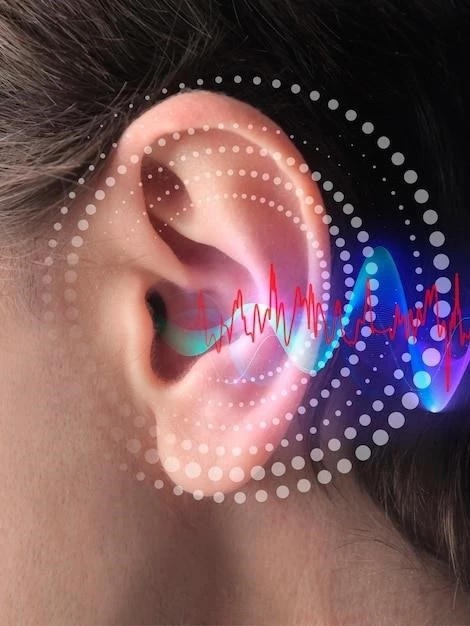Mastocytosis, Short Stature, and Hearing Loss
Disease⁚ Mastocytosis, short stature, hearing loss. This article explores the connection between mastocytosis and growth deficiency, auditory impairment. It delves into symptoms, complications, medical diagnosis, treatment, and systemic effects of mast cells disorder.
Introduction
Mastocytosis is a rare condition characterized by the abnormal accumulation of mast cells in various tissues. Individuals with mastocytosis may experience systemic symptoms due to the release of mediators from these cells. This article focuses on the association between mastocytosis, short stature, and hearing loss.
Short stature, a growth deficiency, is a common complication of systemic mastocytosis. Additionally, auditory impairment, ranging from mild to severe, has been documented in some individuals with this disorder. Understanding the correlation between mastocytosis and these comorbidities is essential for early detection and proper management.
Exploring the symptoms, diagnosis, treatment options, and potential complications of mastocytosis, this article aims to provide insights into the medical aspects of the condition. Furthermore, the systemic effects of mastocytosis on various organ systems will be discussed, shedding light on the multifaceted nature of this disorder.
Understanding Mastocytosis
Mastocytosis is a rare disorder characterized by the abnormal proliferation and accumulation of mast cells in various tissues. These mast cells are part of the immune system and play a crucial role in inflammatory responses. In mastocytosis, there is an overproduction of these cells, leading to symptoms ranging from skin lesions to systemic involvement.
There are two main categories of mastocytosis⁚ cutaneous and systemic. Cutaneous mastocytosis primarily affects the skin and is more common in children. Systemic mastocytosis, on the other hand, involves multiple organs and can have a more widespread impact on the body. Both forms of the disorder can present with a variety of symptoms, including skin itching, flushing, abdominal pain, and anaphylaxis.
Diagnosis of mastocytosis often involves a combination of clinical evaluation, blood tests, skin biopsies, and bone marrow examinations. Treatment strategies aim to manage symptoms and complications and may include antihistamines, corticosteroids, and in severe cases, targeted therapy or bone marrow transplantation. Regular monitoring and medical management are crucial to ensuring the best possible outcomes for individuals with mastocytosis.
Short Stature in Mastocytosis
Short stature, also known as growth deficiency, is a common complication seen in individuals with systemic mastocytosis. The underlying mechanisms linking mast cell disorder to impaired growth are complex and multifactorial. The abnormal accumulation of mast cells in various tissues, coupled with the release of inflammatory mediators, can disrupt normal growth processes.
Children with mastocytosis may experience delayed growth and development due to the impact of the condition on hormonal pathways and bone health. The inflammatory nature of mastocytosis can interfere with the production of growth hormone and other essential factors necessary for proper growth. Additionally, chronic inflammation and nutritional deficiencies associated with the disorder can further contribute to growth impairment.

Monitoring growth parameters and addressing any growth-related concerns early on is crucial in managing short stature in individuals with mastocytosis. A multidisciplinary approach involving endocrinologists, pediatricians, and other specialists may be necessary to develop a comprehensive treatment plan tailored to the individual’s needs. Interventions aimed at optimizing growth potential and addressing associated complications can help improve the quality of life for individuals with mastocytosis and short stature.
Hearing Loss in Mastocytosis
While less common than skin manifestations or systemic symptoms, auditory impairment can occur in some individuals with mastocytosis. The mechanisms underlying hearing loss in mast cell disorder are not fully understood but may involve inflammatory processes affecting the structures of the ear.
Hearing loss in mastocytosis can present with varying degrees of severity, from mild to profound, and may impact both children and adults with the condition. Individuals may experience sensorineural hearing loss, conductive hearing loss, or a combination of both, depending on the involvement of different parts of the auditory system.
Regular audiological assessments are essential for early detection and monitoring of hearing loss in individuals with mastocytosis. Treatment options for hearing impairment may include hearing aids, assistive listening devices, and in some cases, surgical interventions. Collaborating with an audiologist and otolaryngologist can help in developing a personalized management plan to address the specific hearing needs of those affected by mastocytosis.
Symptoms and Complications
Mastocytosis can manifest with a wide range of symptoms and complications, affecting various organ systems. Common symptoms include skin lesions such as red patches or spots, itching, flushing, abdominal pain, diarrhea, and fatigue. In systemic mastocytosis, individuals may also experience bone pain, osteoporosis, and an increased risk of fractures.
The release of mediators from mast cells can lead to systemic effects such as hypotension, tachycardia, and even anaphylaxis in severe cases. Complications of mastocytosis may involve gastrointestinal issues, malabsorption, and liver abnormalities. Additionally, individuals with the condition may be at a higher risk of developing other hematologic disorders;
Managing the symptoms and complications of mastocytosis requires a comprehensive approach that addresses the specific needs of each individual. Treatment strategies may include antihistamines, mast cell stabilizers, corticosteroids, and in some cases, targeted therapy. Regular monitoring and collaboration with a medical team familiar with mast cell disorders are essential in optimizing outcomes and quality of life for affected individuals.
Diagnosis and Medical Management
Diagnosing mastocytosis involves a combination of clinical evaluation, laboratory tests, and histopathological examination of affected tissues. Blood tests may reveal elevated levels of certain biomarkers associated with mast cell activation. Skin biopsies and bone marrow aspirates are commonly performed to assess the presence of abnormal mast cells.
Medical management of mastocytosis aims to alleviate symptoms, prevent complications, and improve quality of life. Antihistamines are often prescribed to help control itching, flushing, and gastrointestinal symptoms. Mast cell stabilizers can help reduce mast cell degranulation, while corticosteroids may be used for more severe cases.
In cases of systemic mastocytosis with organ involvement, targeted therapy, such as tyrosine kinase inhibitors, may be considered. Regular follow-up appointments with a healthcare provider specializing in mast cell disorders are essential to monitor disease progression, adjust treatment regimens, and address any emerging symptoms or complications.
Systemic Effects of Mastocytosis
Mastocytosis can have profound systemic effects on various organ systems due to the aberrant accumulation and activation of mast cells. The excessive release of mediators such as histamine, leukotrienes, and prostaglandins can trigger a spectrum of symptoms affecting the skin, gastrointestinal tract, cardiovascular system, and respiratory system.
In systemic mastocytosis, the bone marrow is often a major site of mast cell infiltration, leading to bone pain, osteoporosis, and an increased risk of fractures. Cardiovascular manifestations may include hypotension, tachycardia, and cardiovascular collapse in severe cases of mast cell activation.
Gastrointestinal complications in mastocytosis can range from abdominal pain, nausea, and vomiting to malabsorption, diarrhea, and liver abnormalities. Respiratory symptoms such as wheezing, shortness of breath, and even anaphylaxis can occur, particularly in response to triggers like insect stings or certain foods.
Given the systemic nature of mastocytosis, a multidisciplinary approach involving hematologists, dermatologists, allergists, and other specialists is often necessary to manage the diverse systemic effects of the disease. Tailored treatment strategies aimed at addressing specific organ involvement and controlling mast cell activation can help improve quality of life and reduce the risk of complications in individuals with mastocytosis.
Lifestyle and Coping Strategies
Managing mastocytosis involves not only medical treatment but also lifestyle adjustments and coping strategies to enhance overall well-being. Individuals with mastocytosis are advised to avoid known triggers such as certain foods, medications, insect stings, and environmental factors that can exacerbate symptoms.
Creating a safe environment at home and work, carrying relevant medical information, and wearing medical alert jewelry can help in emergencies. Developing a personalized action plan with healthcare providers detailing symptom management and emergency procedures is crucial for individuals with mastocytosis.
Incorporating stress-reducing activities such as meditation, yoga, or mindfulness practices can help manage anxiety and reduce the likelihood of triggering mast cell activation. Adequate rest, a well-balanced diet, regular exercise, and staying hydrated are essential components of a healthy lifestyle for individuals with mastocytosis.
Seeking support from family, friends, support groups, or mental health professionals can provide emotional support and guidance in coping with the challenges associated with mastocytosis. Open communication with healthcare providers and staying informed about the latest advancements in mast cell disorder management are vital in navigating the complexities of the condition;
Conclusion
In conclusion, mastocytosis is a complex disorder characterized by the abnormal proliferation of mast cells, leading to a range of systemic manifestations. The association of mastocytosis with short stature and hearing loss underscores the diverse nature of this condition and its impact on various organ systems.
Early diagnosis, multidisciplinary management, and tailored treatment approaches play a crucial role in addressing the symptoms, complications, and systemic effects of mastocytosis. By understanding the mechanisms underlying growth deficiency and auditory impairment in individuals with mast cell disorder, healthcare providers can optimize care and improve outcomes.
Lifestyle modifications, coping strategies, and ongoing support are essential components of comprehensive care for individuals with mastocytosis. Empowering patients with information, promoting self-management techniques, and fostering a collaborative relationship between patients and healthcare providers are key in navigating the challenges posed by mastocytosis.
Continued research efforts aimed at elucidating the pathogenesis of mastocytosis, identifying novel treatment modalities, and enhancing quality of life outcomes for affected individuals are vital in advancing the field of mast cell disorders. With a holistic approach encompassing medical, lifestyle, and psychosocial aspects, individuals with mastocytosis can effectively manage their condition and lead fulfilling lives.
